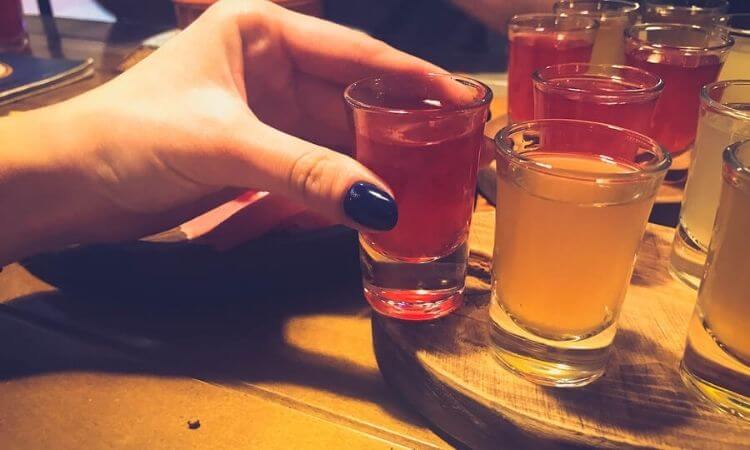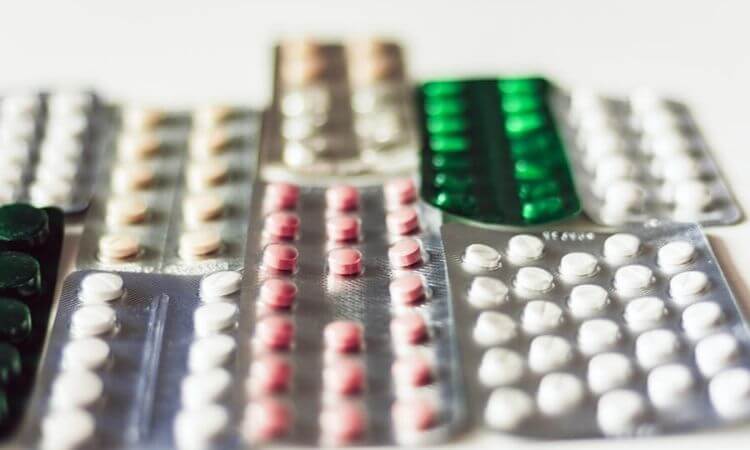
A popular theory that is somewhat backed by evidence is that the use of certain habit-forming substances that are considered less harmful than some others can progress into the use of stronger, more potent, and addictive drugs. Substances that are correlated with increasingly more intense drug use are referred to as gateway drugs.
The Gateway Drug Theory
Gateway drugs are substances believed to open the door to the use of extremely dangerous and powerful addictive illegal drugs such as meth, heroin, and cocaine. Prescription painkillers, marijuana, nicotine, and alcohol increase dopamine levels, which results in pleasure and feelings of reward.
This dopamine boost induced by gateway drugs before adulthood while the brain is still developing can result in less dopamine production later in life. This alteration in brain chemistry may compel people to seek more potent drugs that cause much higher releases of dopamine. Gateway drugs are also purported to prepare the brain for a response to other substances, a process referred to as cross-sensitization.
Recent History and Controversy
Since the 1980s, young people have been warned by educators and others about the potential dangers of using gateway drugs. For many years, middle school health educators have made the topic of gateway drugs a focus of their teachings. However, the controversy surrounding this theory has led some to reconsider the use of the term.
Officials at DARE (Drug Abuse Resistance Education) now admit that most people who smoke marijuana do not move on to the use of more powerful drugs. Indeed, some critics believe that marijuana use may actually prevent other drug use, despite the fact there is little reliable evidence that exists to support that assertion.
Critics also contend that the gateway drug theory is flawed because it frequently relies on animal research. Likewise, drug use rates in other countries do not appear to be influenced by the pervasiveness of marijuana.
Support for the Theory
For decades, supporters of this theory have argued that certain substances, such as marijuana, are gateway drugs. Conversely, critics claim that no substantial evidence exists to support the theory. Supporters refer to a copious amount of research that may strengthen the theory.
For example, the National Center on Addiction and Substance Abuse (2016) found that teenagers who use gateway drugs are as much as 266 times more likely to develop an addiction to cocaine than those who do not. This same study also revealed that nearly all cocaine users (90%) previously used marijuana, cigarettes, or alcohol before trying cocaine. Indeed, although no evidence solidly confirms the gateway drug theory, many trends suggested by research lend some credence to it.
Backlash
Critics often point out that compulsive drug-using behavior is the product of a variety of factors, including genetic makeup, family history, childhood trauma, mental illness, and home and community environment. Moreover, some critics believe that gateway drugs are but a single factor among many factors that contribute to a person’s risk of experimenting with more dangerous substances.
Some reports have supported this argument. For example, according to the National Institute on Drug Abuse (NIDA), most young marijuana users stop consuming the drug upon reaching adulthood.
What Are Common Gateway Drugs?
Alcohol, marijuana, and nicotine have long been commonly referred to as gateway drugs. In recent years, prescription drugs and other common substances have joined the list.
Alcohol

Alcohol is a central nervous system (CNS) depressant that impairs brain functioning and motor skills. In 2014, almost 88% of adults reported consuming alcohol at some point in their lives, and nearly 25% reported engaging in binge drinking in the past month. If the gateway drug theory is correct, alcohol is probably a gateway drug, according to the finding of many studies.
For example, a University of Florida study revealed that students who used alcohol were as much as 16 times more likely to use illicit substances, such as certain stimulants, later on in life. Many students began experimentation with socially acceptable substances such as alcohol or tobacco before transitioning to marijuana use. Eventually, they may move on to harder drugs, such as cocaine.
Illicit substances linked to alcohol use include marijuana, cocaine, and opioids, namely heroin. Multiple studies have found that drinking at a young age influences drug use later in life. A study from 2016 published in the Journal of School Health found that 6th-grade students who consumed alcohol went on to try illicit drugs later on in life.
What’s more, a Substance Abuse and Mental Health Services Administration SAMHSA) survey found that underage drinkers were more likely to use illegal drugs within two hours of alcohol consumption than legal drinkers. And, a majority of teenage drinkers used illicit drugs, such as marijuana.
Marijuana
Marijuana is a drug that can alter a person’s attention, memory, motivation, and ability to learn. More than 22 million people admitted to using marijuana in the past month in per NIDA (2014), making it the most used illicit drug (at the time) in the United States. Although cannabis is probably the most commonly recognized gateway drug, its contribution to the use of more powerful drugs has often been hotly debated.
Many contend that marijuana use can increase a person’s tolerance for stronger drugs, and some research has suggested this contention may be correct. For example, a study published in the International Journal of Drug Policy revealed that nearly 45% of regular marijuana users also used another illicit drug later on in life, and one of those drugs is heroin.
Studies have found that the majority of heroin users began their relationship with intoxicating substances by drinking alcohol or using marijuana. Indeed, according to the Centers for Disease Control and Prevention (CDC), marijuana users are three times more likely than non-users to abuse heroin.
Of note, according to a report by the Journal of Health and Social Behavior, there is a “moderate relation between early teen marijuana use and young adult abuse of other illicit substances” but that “this association fades from statistical significance with adjustments for stress and life-course variables.” Moreover, researchers found that “any causal influence of teen marijuana use on other illicit substance use is contingent upon employment status and is short-term, subsiding entirely by the age of 21.”
Prescription Drugs
Per NIDA, About 52 million Americans over age 12 have used prescription drugs for non-medical purposes in their lifetime, and opioid painkillers are the most commonly abused. Prescription drugs such as opioids have been strongly linked to heroin use.
Heroin is a synthesized opiate that can be laced with other prescription drugs, such as fentanyl, to achieve a more powerful high. Many prescription drugs have effects similar to heroin, which has led many opioid abusers to transition to these highly addictive and often deadly drugs.
According to the CDC, opioid users are forty times more likely to abuse heroin than non-users. In comparison, people suffering from alcohol addiction were just two times more likely to abuse heroin than non-users, and marijuana users are three times more likely to use heroin. Many opioid abusers also switch to heroin because it is a less expensive option, or do so when they are no longer able to obtain their prescription drug of choice, for whatever reason.

Other Gateway Drugs
Many substances, both legal and illicit, can boost dopamine levels and have the potential to serve as a gateway drug. These include but are not limited to nicotine, inhalants (e.g., paint thinner), ecstasy (MDMA), anabolic steroids, and energy drinks.
Treatment for Drug Addiction
Midwood Addiction Treatment specializes in the treatment of substance and addiction. We offer comprehensive programs that include psychotherapy, counseling, group support, medication-assisted therapy, and much more. Our skilled staff are dedicated to equipping clients with the tools they need to achieve abstinence, prevent relapse, and enjoy long-lasting, healthy, and fulfilling lives.
Contact us today to find out how we can help you or your loved one break free from the cycle of addiction for life!